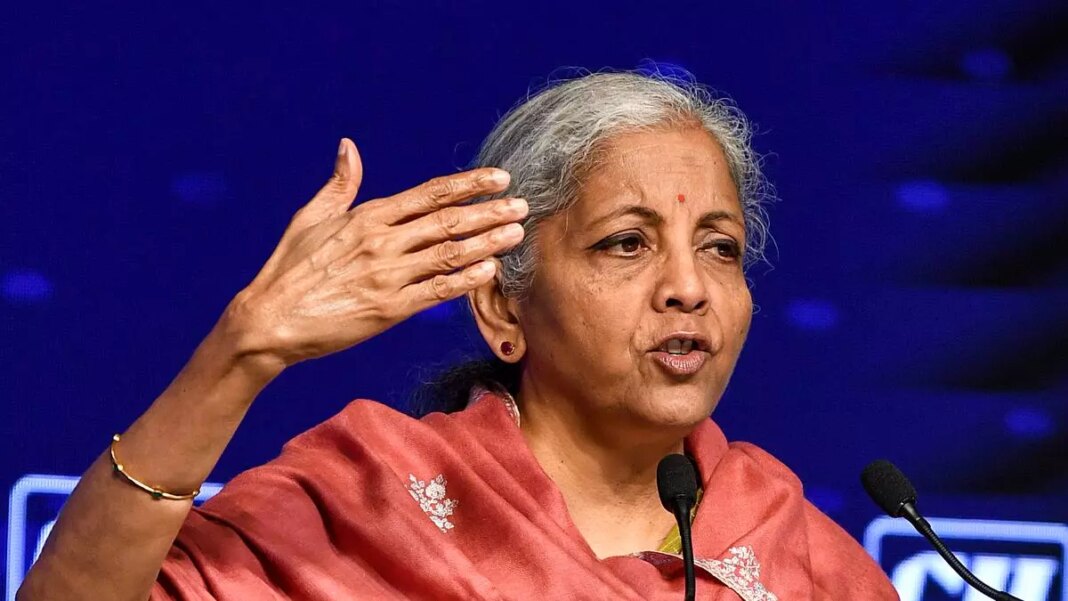Finance Minister Nirmala Sitharaman has said that loans up to ₹10 lakh and up to ₹50 lakhs have increased three times and four times respectively during last ten years. She also said that public sector banks have meagre vacancy and even those are expected to be filled up soon.
Sitharaman was responding to Leader of Opposition (LoP), Rahul Gandhi’s allegation about using public sector banks more to rich and powerful companies. Gandhi met representatives of bank union early on Wednesday.
“Didn’t the people who met with the LoP tell him that loans up to ₹10 lakh have increased by 238 per cent in the last 10 years, and their share in total loans has also increased from 19 per cent to 23 per cent? Similarly, didn’t the people who met with the LoP tell him that loans up to ₹50 lakh have also increased by 300 per cent, increasing their share from 28 per cent to 42 per cent in the last 10 years?” Sitharaman said in a series of tweets on social media platform X.
Earlier, Gandhi had alleged that public Sector Banks were designed to give every Indian access to credit. The Modi government has turned these lifelines of the masses into private financiers for only the rich and powerful corporations. “I met with a delegation from the All India Banking Officers Confederation, who expressed their distress at the state of our public sector banks and the impact of it on common people. Public Sector Banks are being forced to prioritise profit over people and are thus unable to serve the public effectively,” Gandhi said in a social media post.
Replying to this, Sitharaman said that as on October 2024, 96.61 per cent of Officers are in position and 96.67 per cent of Subordinate/ Award Staff are in position, showing meagre vacancies which are also being filled. Again, “didn’t the people who met with the LoP tell him that 12th Bipartite Settlement (BPS) was signed, far ahead of the usual time taken for the agreement, thereby enhancing the incomes of the bank employees?” she asked.
Further she mentioned that the 12th BPS includes many employee-friendly measures like: increase of 17 per cent in salary and allowance (₹12,449 Crore) and load of 3 per cent (within overall increase of 17 per cent) amounting ₹1,795 crore (attracting terminal benefits). Also, there are new pay scale & cost sheets for all cadres besides, change in the base year for calculating DA/DR rates for the in-service staff as well as the pensioners/family pensioners from 1960 to 2016.
“Staff welfare fund (SWF) was given a boost by increasing the maximum ceiling of annual spending. The ceiling, last revised in 2012, was thoroughly revised. Post revision, the combined maximum annual expenditure ceiling of SWF for all the 12 PSBs has increased from ₹540 crore to ₹845 crore. This increase will benefit 15 lakh staff, including retired employees,” she said while reminding Rahul Gandhi that it was under PM Modi in 2015 that the RBI announced that all banks would be closed on the second & fourth Saturdays of the month.
Gandhi also alleged that with staff shortages and a toxic work environment, they are expected to reach unachievable targets without a level playing field – Women employees are not given equal opportunity or advancement and forced to bear the brunt of dissatisfied public Modi govt must stop using PSBs as an unlimited source of funds for their fraudulent friends. “There’s also more to a public sector bank than a dividend cheque to the govt at the end of the year,” he said.
According to Sitharaman, the Public also has a shareholding in the PSBs and dividends are the source of income for such investors also. Not just for the GoI. “Didn’t the people who met with the LoP tell him that during the UPA rule these PSBs paid dividends of ₹56,534 crore?”, she said. Further, women are excelling as MDs, CEOs, and leaders in the sector. The Modi government’s commitment to women-led development is evident not just in policy but in practice. In the recent order issued by Financial Services Department to all the banks on November 26 clearly shows that the government is making sure that the banks look after women employees, their well-being and concerns.


